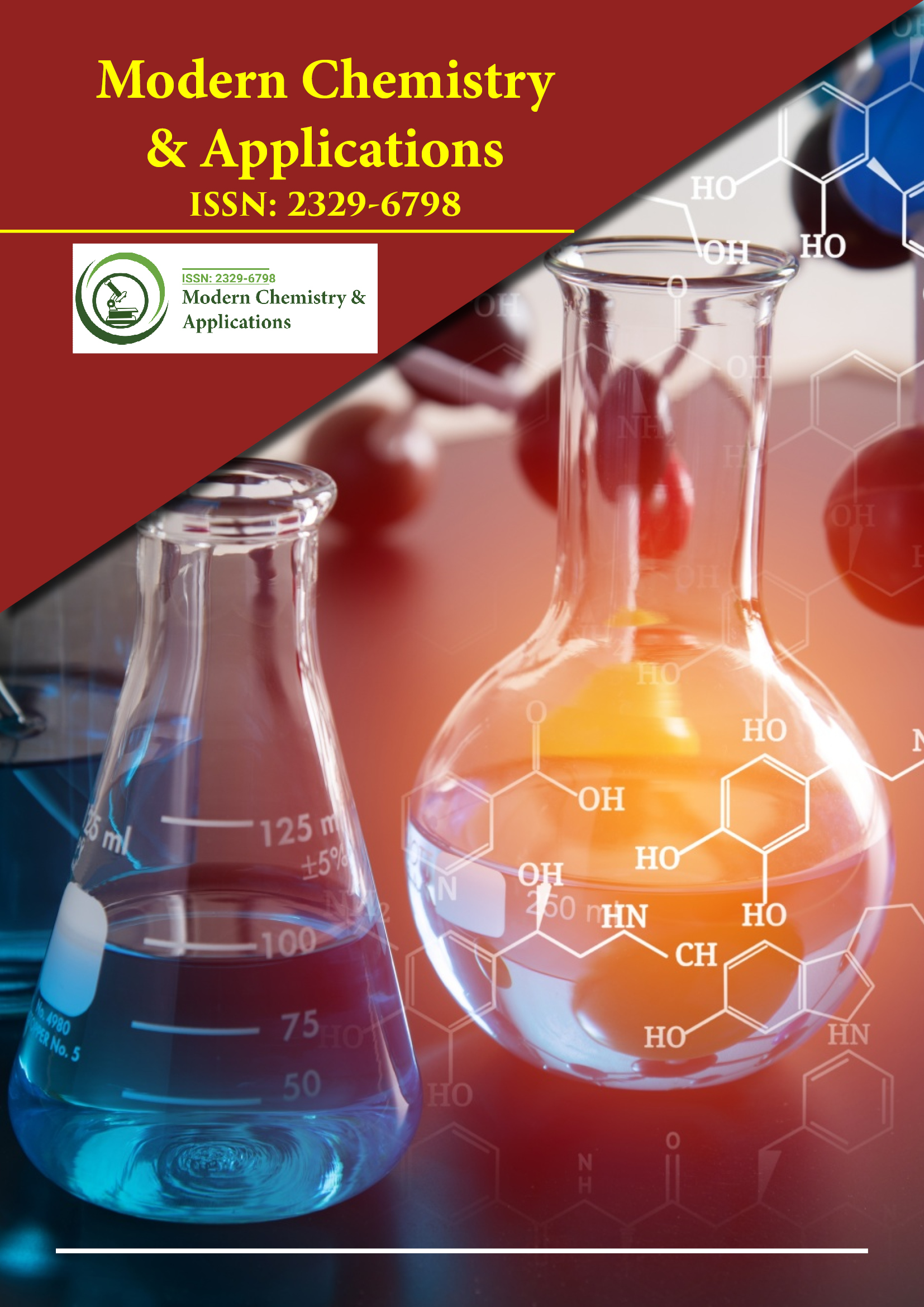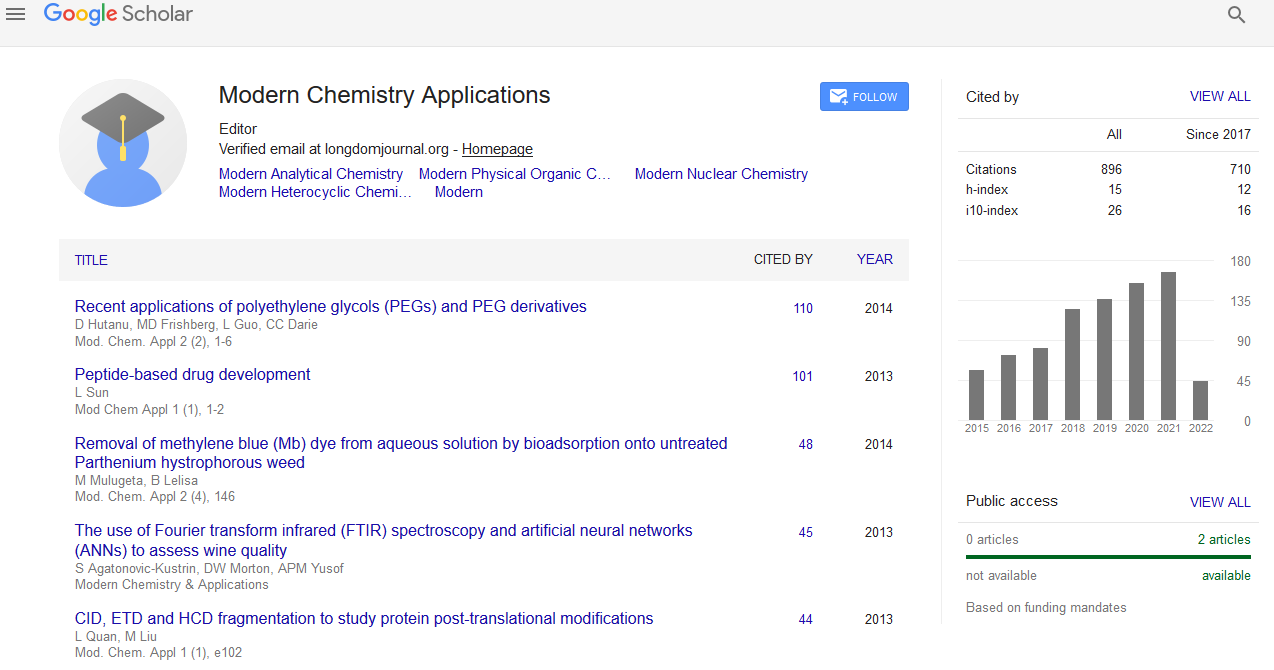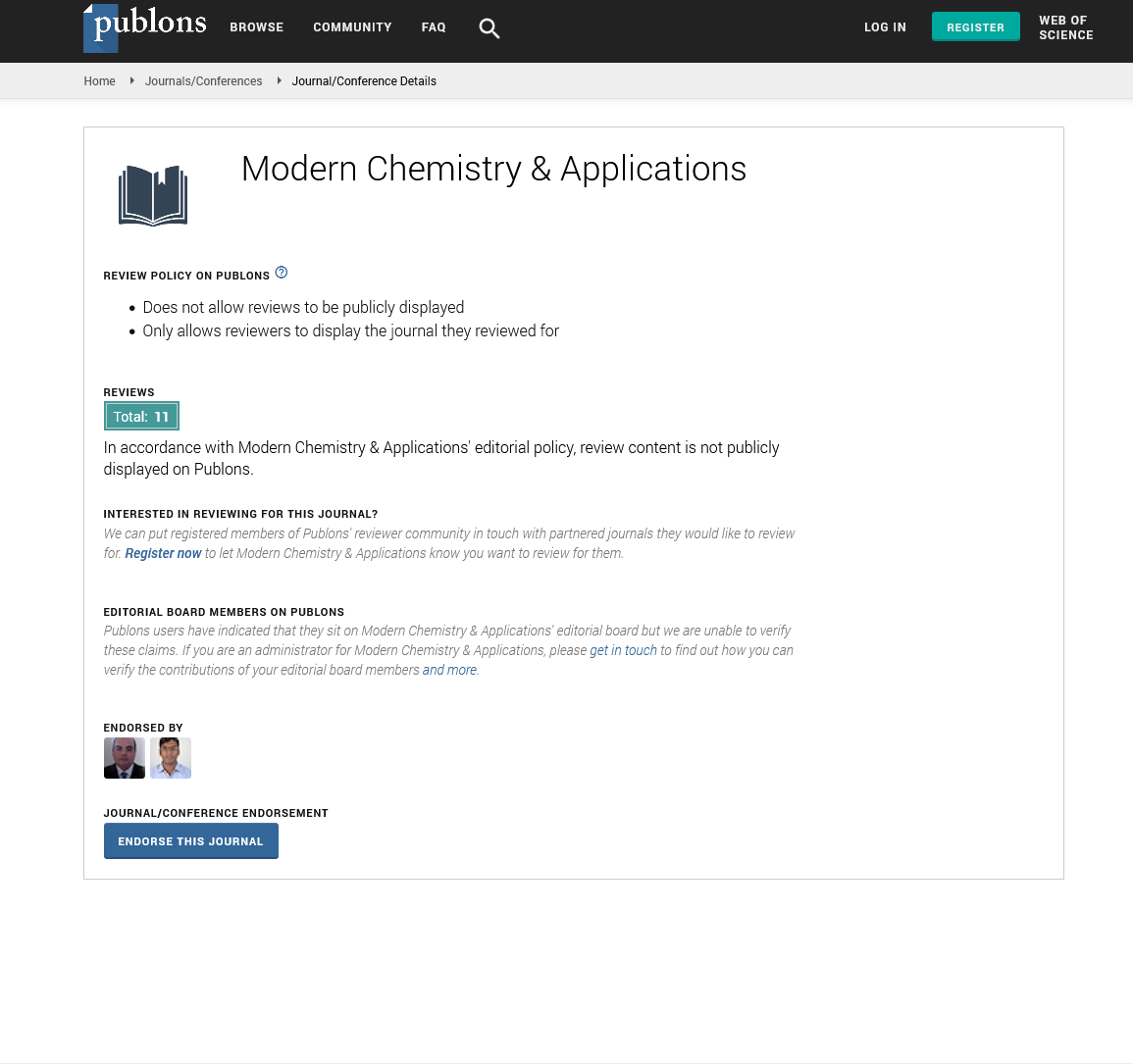Indexed In
- Open J Gate
- JournalTOCs
- RefSeek
- Hamdard University
- EBSCO A-Z
- OCLC- WorldCat
- Scholarsteer
- Publons
- Geneva Foundation for Medical Education and Research
- Google Scholar
Useful Links
Share This Page
Journal Flyer

Open Access Journals
- Agri and Aquaculture
- Biochemistry
- Bioinformatics & Systems Biology
- Business & Management
- Chemistry
- Clinical Sciences
- Engineering
- Food & Nutrition
- General Science
- Genetics & Molecular Biology
- Immunology & Microbiology
- Medical Sciences
- Neuroscience & Psychology
- Nursing & Health Care
- Pharmaceutical Sciences
Rapid production of high purity hydrogen fuel from fossil fuels
Joint Event on 19th International Conference on Medicinal Chemistry & Multi Targeted Drug Delivery & International Conference on Catalysis and Pyrolysis
November 05-06, 2018 | San Francisco, USA
Xiangyu Jie, Tiancun Xiao and Peter P Edwards
University of Oxford, UK
Scientific Tracks Abstracts: Mod Chem Appl
Abstract:
At this time, it is one of the central tasks of science and society to advance the development of sustainable power structures and transport systems. Now is the time to transform world economies toward a more sustainable low-carbon future. So, we believe the direction is now set: Decarbonisation. Hydrogen technologies and fuel cells have the potential to offer sustainable energy solutions toward a low-carbon future. However, hydrogen storage is widely recognized as a critical enabling technology for the successful commercialization and market acceptance of hydrogen-powered vehicles. We have recently developed a new approach to this grand challenge of decarbonisation for the utilization of fossil fuel and also the challenge of the hydrogen storage materials. The key challenge of rapid production of and high selectivity towards, H2 production has been demonstrated using resonant microwave-electric field irradiation applied in a laboratory device, typically achieving >98% H2 purity. Such a rapid and selective production of hydrogen from liquid hydrocarbon alkanes reveals a powerful new platform for hydrogen production. Importantly, these findings represent a new and attractive path towards a decarbonized fossil fuels economy: Thus, fluid hydrocarbon fuels are not combusted - but rather utilized as an abundant, widespread source for the production of high purity hydrogen for use in fuel cell vehicles. In this approach, CO2 would never enter the atmosphere as in the conventional combustion process. The utilization process yields elemental hydrogen and elemental carbon; the latter can then be readily subjected to recycling through a range of established chemical routes.
Biography :
Xiangyu Jie has obtained his Bachelor’s degree in Chemical and Environmental Science at Gunma University, Japan. He is now undertaking his final year DPhil research in Inorganic Chemistry at the University of Oxford. He has his expertise in heterogeneous catalysis and a new method for hydrogen production. He has already published 4 papers during his DPhil research and produced a first-class paper as lead author in Angewandte Chemie honouring Nobel Laureate Roald Hoffmann on his 80th birthday.As a young researcher, he has been elected to present his work for at the House of Parliament, London, UK.
E-mail: Xiangyu.jie@chem.ox.ac.uk


